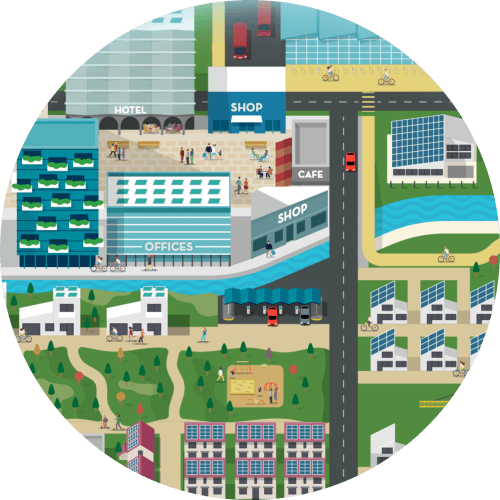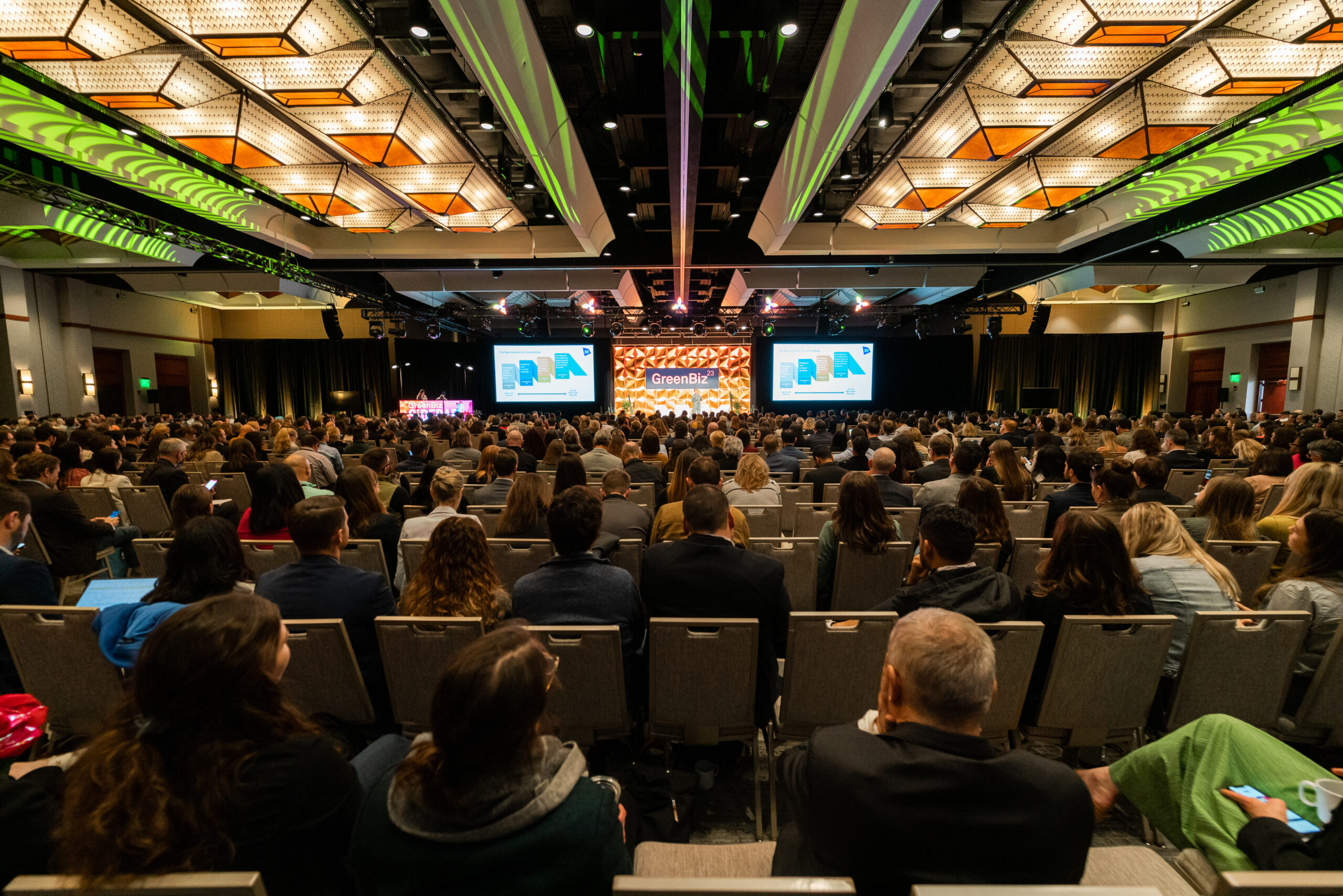Small businesses want to help tackle the climate crisis but lack finance and knowledge, new survey finds
Second annual SME Climate Hub study reveals drivers and barriers for SMEs taking climate action
- 70% of surveyed SME leaders require additional funds to take action or speed up progress to reduce emissions
- Nearly 1 in 3 respondents have already reduced emissions, with 71% taking steps to reduce energy consumption
- 66% are already educating employees, providing solutions and changing behaviour to reduce emissions
February 14, 2023: The SME Climate Hub today released results of its second annual study into what is driving – or hindering – small and medium-sized enterprises (SMEs) taking climate action. The Small Business Climate Action: Barriers and Bridges report revealed that the majority of SMEs have the will to create a better future for their business and for the planet and are taking an increasingly proactive approach in tackling the climate emergency. Despite 77% not being asked to reduce emissions by customers, 80% are taking climate action as it is the right thing to do according to the survey. However, substantial barriers remain.
Providing insights from SME business leaders in 40 countries and over 20 industries, the study provides a barometer for the small businesses’ climate action journey. Since SMEs make up 90% of business globally, employ 70% of the world’s workforce and contribute over 50% of global GDP according to the International Labour Organisation, they play a critical role in local communities and economies. Additionally, their impact on global supply chains means any global climate targets cannot be met without mobilising SMEs on climate.
Key findings from the study include:
- Finance is a major hurdle with 70% of respondents needing funds to take action or speed up progress of their emissions reduction efforts. However, 47% of SME leaders surveyed estimated they would need up to $100,000 to achieve net-zero, which should be helped by the public and private sector investors increasing access to finance.
- Lack of climate skills and knowledge is preventing 58% of respondents from taking more ambitious action on climate, likely due to SMEs having inherently smaller teams, with greater time constraints.
- Measurement and monitoring tools encourage business to take greater climate action according to 3 in 5 (61%) of respondents. This trend has caused free resources such as the SME Climate Hub to increase its community to over 5,500 businesses across 112 countries in under two years.
- Business benefits of climate action were highlighted as a key reason to act with 65% of respondents saying they believed this differentiated their business from competitors, whilst 73% took action to enhance the reputation of their business.
- Climate action is gaining momentum within the SME community with 3 in 5 (60%) respondents reporting having encouraged other businesses to make the SME Climate Commitment.
Pamela Jouven, Director of the SME Climate Hub, said “Despite their collective impact on communities and economies, small businesses are often amongst the most vulnerable to change and disruption. Rising global temperatures and weather-related disasters particularly impact SMEs given their localized supply chains, centralized infrastructure, and dependence on the communities in which they operate. At the same time, SMEs have been the least equipped to mitigate their role in the climate crisis. Small businesses are facing greater risk while also potentially missing out on the benefits of building more resilient businesses and cutting costs.”
The SME Climate Hub aims to help SMEs on their climate journey by providing free resources, tools and knowledge to help businesses reduce their emissions.
Jeff Hayes, President & CEO, Myers-Briggs Company, USA, said; “This climate emergency requires all of us to rethink the design and operation of our businesses. As part of our commitment to a low carbon future, we’re focusing on transforming our business to be digital-first. This includes encouraging – and in some cases incentivizing – customers to use electronic versions of our products and reducing paper use and shipping needs. Currently, our electricity is sourced from renewable sources, we’ve limited travel to essential needs, and are working to further reduce our carbon emissions to reach Net Zero by 2030.
Pamela Jouven, concluded; “There is a rising groundswell of climate action among small businesses globally, leading to a positive feedback loop as more SMEs encourage other businesses to act. This momentum will continue to grow exponentially. Though any one company’s impact may seem small, together small businesses are essential in driving this change. Key to this will be access to resources and finance to help small business action. This requires collaboration between policymakers, private sector business leaders and financial institutions to create a landscape that energises SMEs through information resources, innovative policy solutions and financial incentives.”
Additional SME voices on the Small Business Climate Action: Barriers and Bridges report
- Lina Ruiz, Head of Corporate Social Responsibility, WeTransfer, Netherlands
“As our industry grows and matures, so should our collective sense of responsibility. It’s now broadly accepted that being good and being profitable are not mutually exclusive. We’re hoping to encourage more businesses and up-and-coming start-ups, regardless of their sector or size, to showcase how to build sustainable business models from the get-go.”
- Gordon Smith, Software Engineer, Luko, France
“As a startup, we have to deliver attractive products at a fast pace to have consistent strong growth. Adding climate action is not an easy challenge to achieve, especially with a large list of priorities and exponential team growth.”
- JJ Ryan, Director, Woodfashioners, UK
“Reducing emissions will save us money in the long-term. It will help to generate new business, keep us ahead of the curve and regulation, and force us to think more innovatively about how we do business.”
- Alice Wachera, Graduate Structural & Civil Engineer and Climate Champion, BuildX, Kenya
“To reduce the built environment’s impact on the climate crisis, we need to understand the carbon impacts of our designs. Our focus is on lowering carbon through efficient design to reduce the amount of materials needed and increase the use of alternative sustainable materials such as timber and earth.”
Methodology:
To better understand the motivators and barriers of small business climate action, the SME Climate Hub conducted a survey of its 5,200 committed signatories. Businesses committed to the SME Climate Hub represent a sample of companies from around the world, with the survey distributed to SMEs from 107 countries, across industry, size and valuation. As signatories of the SME Climate Commitment, survey respondents are amongst the first movers on climate action. The survey received responses from 344 businesses across 40 countries and over 20 industries. The SME Climate Hub defines SMEs as businesses with under 500 employees. The findings from this survey will be used to improve and refine the tools and resources available to the SME Climate Hub community.
About SME Climate Hub:
The SME Climate Hub is an initiative of the We Mean Business Coalition, the Exponential Roadmap Initiative, and the United Nations Race to Zero campaign. In collaboration with Normative and the Net Zero team at Oxford University, the SME Climate Hub provides tools and resources to enable small and medium-sized enterprises (SMEs) to make a climate commitment, take action and measure their progress towards emissions reductions in line with the latest science.
Media contact:
Elvis Moyo (UK), [email protected]

 Go back
Go back







